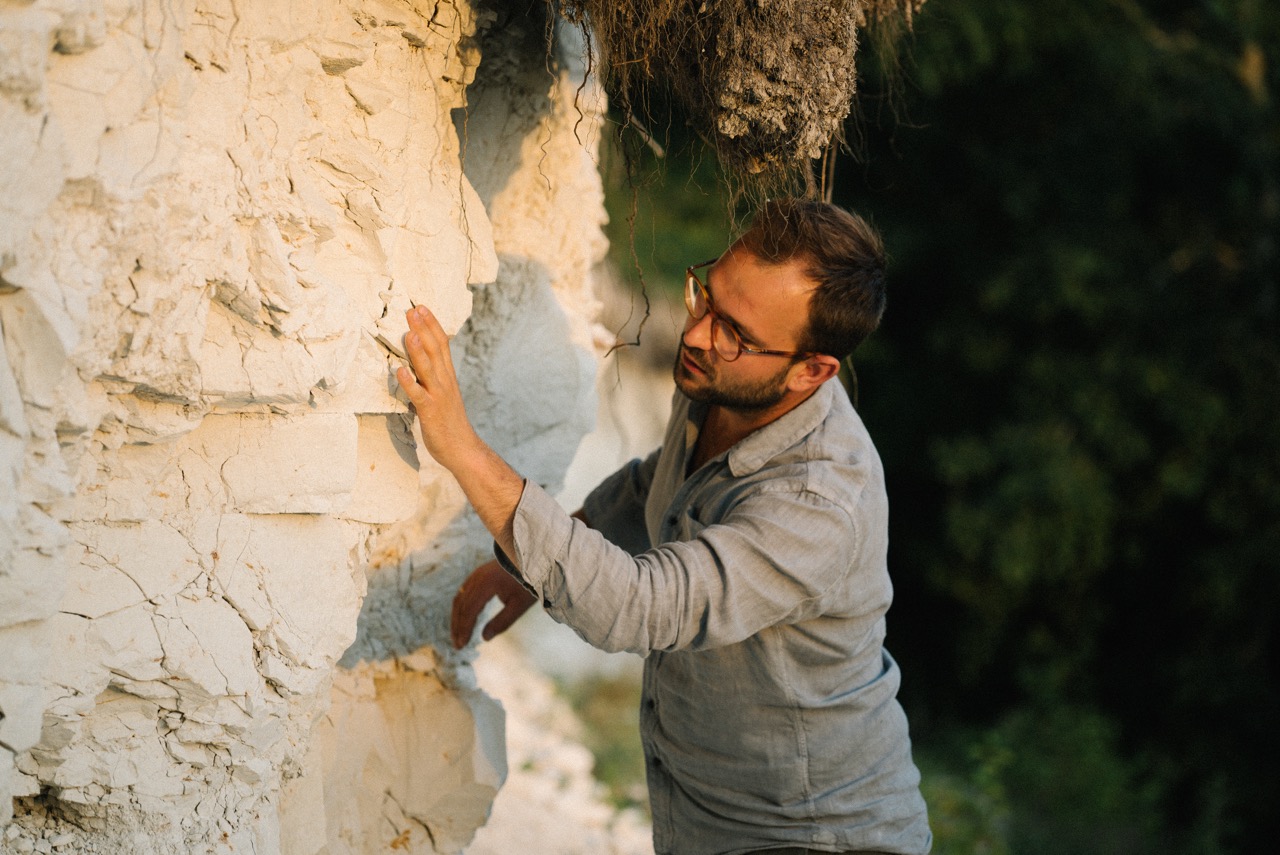
Kamil Barczentewicz: Beauty and Goosebumps
29.9.2025
"Once the harvest and fermentations start, everything changes. When you are closer to the wine as it is being born, life becomes simpler." Kamil, one of the most accomplished Polish winemakers, opens up about his limestone soils, the emotions that move us, and our shared love for Blaufränkisch.
Kamil is so inspiring to me – he knows where he's going and how to get there. From the very beginning of creating his eponymous winery in Dobre, in south-eastern Poland, he's been aiming high. And rightly so, with a terroir this exceptional – he farms 12 hectares of (mostly) limestone, located in a climatically and naturally unique place close to the Vistula River. A one-of-a-kind locality that he wants to express in his wines, and he's succeeding.
One sip of his elegant Pinot Blanc, Chardonnay, Pinot Noir, or Riesling, and you'll see what I mean when I say that Kamil is not a rising star of Polish winemaking, but already a fully shining one.
He seems to have skipped the searching phase entirely: to my eyes and palate, his wines have had clear vision, consistency, and confidence from day one. He's showing the way forward for others, steadfastly pursuing his vision of what wine from his region should be.
Words by Milan Nestarec, photos courtesy of Kamil Barczentewicz
We’re making this interview just before the harvest, are you nervous about it? Personally, I am more nervous beforehand and then once it starts I am relatively calm. I've heard that actors who are about to go on stage sometimes have a similar experience. How do you live it?
Yes, we are still before harvest now, mid-September. This vintage was quite difficult, so it will be one of the latest harvests we’ve ever had. I think we’ll start soon, starting, as we usually do, with the early clones of Pinot Noir, Pinot Noir Précoce.
I totally understand your feeling about being nervous just before – I have the same. It’s really similar to being on stage: you overthink things, you have too many ideas. But once the harvest and fermentations start, everything changes.
"When you are closer to the wine as it is being born, life becomes simpler, and that is very important in winemaking."
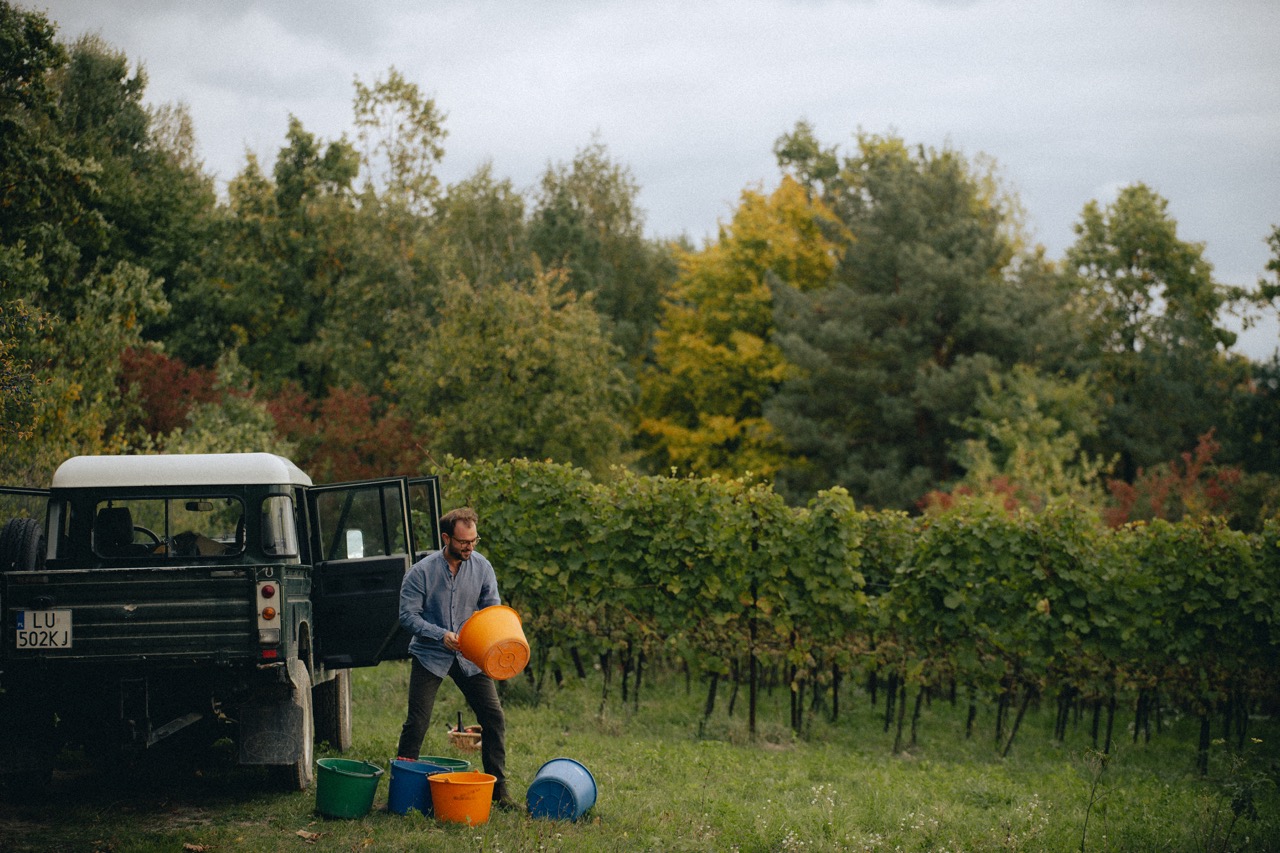
Was the decision to make wine purely your own, or does it have some broader family context? I don’t know much about your background in fact, except that your mother is an architect, right?
My mom is not a professional architect, but she designed how our place looks, so in fact she was responsible for the design and the final construction. My father was the first to introduce me to wine, and my mother was also important because she cooks with a Mediterranean touch. For me, the culture of wine is always connected to food and beauty. That’s why I mention it. I made my first wine together with my father, as garagistes [laughs]. But my professional career in wine – that I built completely on my own.
You've travelled quite a bit around the wine world, from internships in Europe and South America to studies in Bordeaux and Burgundy. When exactly did all this happen, was it before you planted your vineyards? I'm trying to understand if you founded your winery with a clear opinion and vision of what you want, or if it was happening in parallel with learning and searching for your own style.
Our first wine was born in 2016 – Pinot Gris and Zweigelt, just about 100 bottles of each, made in a garage. We bought the grapes from neighbours, it wasn’t commercial[ly released], more of a trial. A year later, in 2017, we planted our first vineyard. At first, we thought of it as a hobby. Then I went to Weingut Heinrich Hartl in Thermenregion, Austria, for my first vintage, and that was very important.
"Tasting Pinot Noir from different barrels, clones, plots, and vinification methods was a new chapter for me. "
I realised how deep winemaking is and how many details matter. That’s when I decided I wanted to be a winemaker. My wife Ania also joined me for two weeks there, so she could see the family life of Heinrich and Marie-Sophie, who are truly wonderful people.
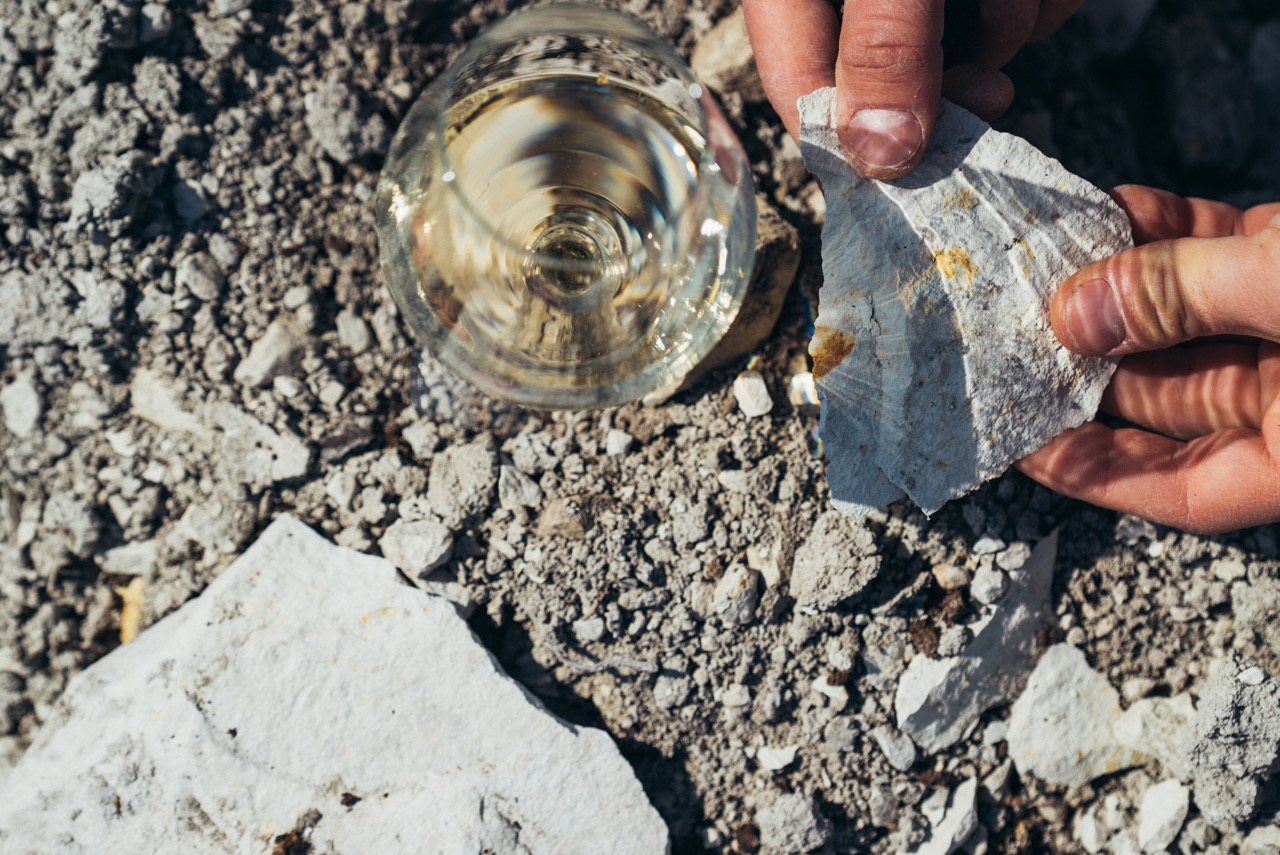
I talk about 'own style' but at the same time I'm wondering—does it even exist? I guess each of us has one. I'm just interested in your opinion on whether it's something we should intentionally highlight, or rather suppress, so that we don’t overshadow our terroir.
For me, terroir is not only soil and climate but also the human being who lives there. Of course, every winemaker makes choices – when to harvest, whether to use stems or not, how long to macerate, how long to age the wine, etc. These decisions shape the wine. So in my view, it is always a dialogue between terroir and winemaker. In Poland, for example, our climate doesn't allow us to produce massive reds. But we naturally have high acidity, and that is our advantage. I want to highlight it.
So my Pinot Noir should be elegant rather than heavy. Maybe it sounds a bit obvious, but this “own style” is, to me, even more clearly expressed in the character of what an elegant style is – and, after all, what does “elegant style” really mean for each winemaker, whether from the Czech Republic, from Poland, or from a very traditional region like Jura.
In Dobre, where you farm, there’s a lot of limestone in the soil. Is it a place where you or your family come from, or is it a place that you deliberately chose as the best for winegrowing and then moved there?
Definitely the latter. I was born in Lublin, in Eastern Poland. When I was searching for the best place to grow vines, I evaluated three sites in the region and chose this one mainly because of the soils—limestone, marls, and loess. It's a hill, around 200 meters above sea level, with perfect exposure, close to the Vistula River, Poland's largest river.
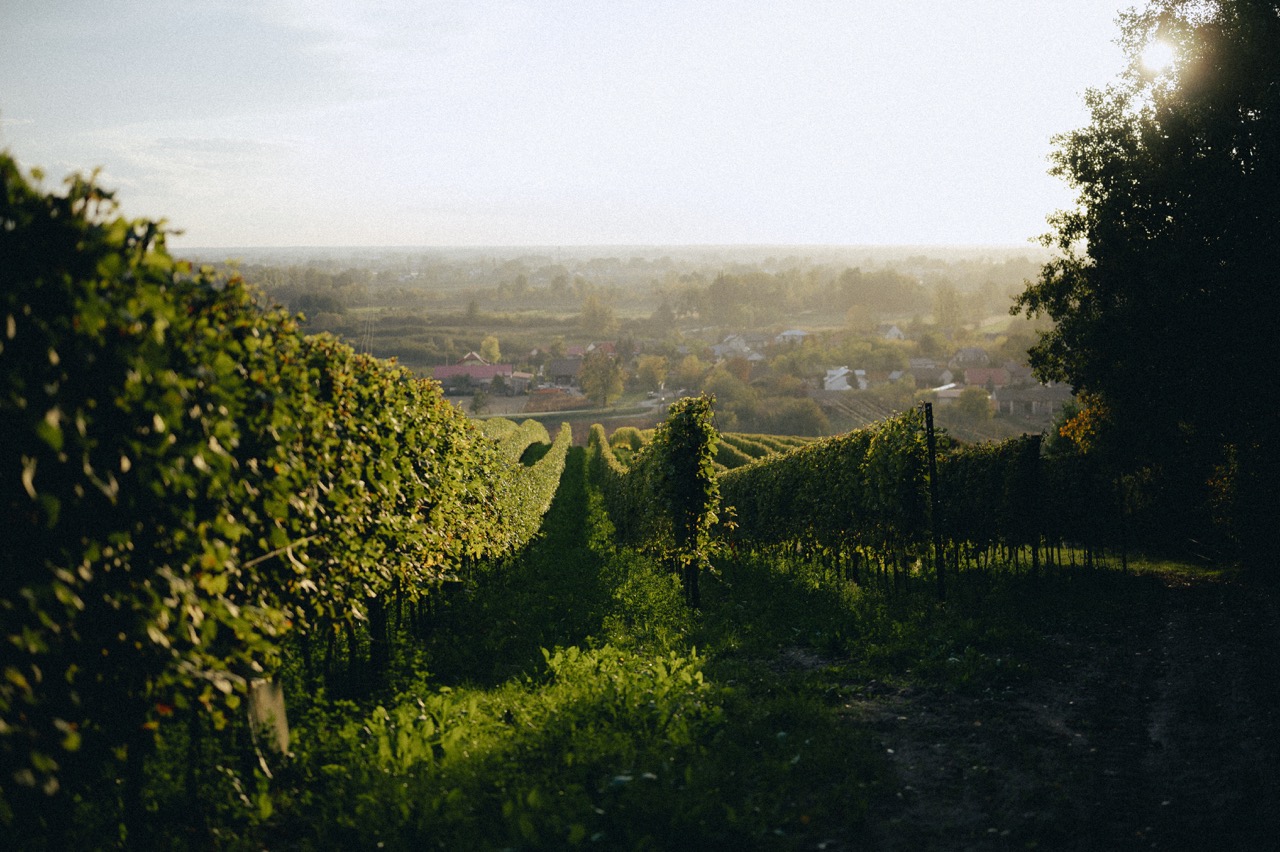
It's one of the warmest spots in Poland. There are even protected xerothermic meadows [dry, warm grassland ecosystems that develop in areas with specific climatic conditions—typically places with hot, dry summers and relatively mild winters; editors' note] nearby, which proves how warm it is. Historically, there used to be vineyards here as well, planted by Benedictine monks, as well as royal vineyards near Janowiec Castle.
I think it’s important to counter and reject the opinion that paints Poland a new wine country. For me, it is already an established one, and will be even more so in the future. You have conditions that some southern countries might actually envy, especially the potential for freshness and great white wines. Is this something that you consciously work with, as a Polish winemaker?
Of course. Our naturally high acidity is a huge advantage. I remember adding large amounts of tartaric acid to tanks when I was in Chile, it was crazy. Here, we naturally have it. I promised myself that I would never do this in Poland. With good vineyard sites, this acidity can be round and beautiful, and it can become the spine of our wines.
I'm fascinated by Poland as a country. I really like your country, and in recent years I've been constantly amazed by the progress you guys have achieved and your determination to reach your goals, at least compared to the other Visegrad countries. Is it encoded in your DNA somehow—this drive to succeed?
Maybe it comes from our sad history and our precarious location in Europe – always close to Russia, always under threat. It made us ambitious and strong. You can feel it even today, when terrorist drones have crossed our borders – the highest number entered my native Lublin region. But coming back to the positive things: when I travel around Europe, people often describe Poles as ambitious, creative, and well-educated. I think we have this drive to make things happen.
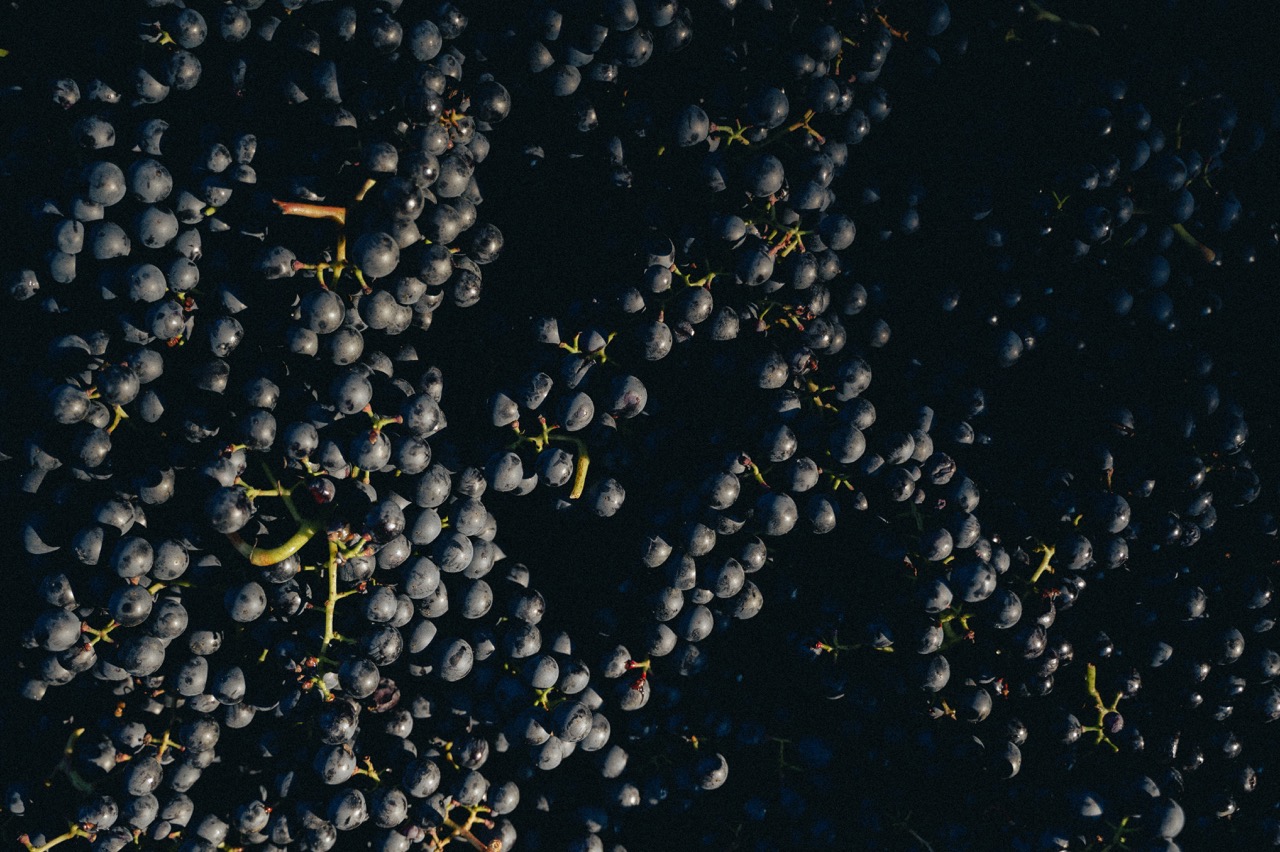
I don't want to get too hung up on PIWI, I understand that it can be annoying that everyone associates you with it. Personally, I have a neutral opinion of these grapes and I don't mind them. I tried many PIWI wines and came to the conclusion that 100% Vitis vinifera is essential for the noblest wines. How do you feel about it?
Yes, I feel the same. At the beginning we had maybe 10 % of hybrids, now it’s down to 3 % [of our vineyard area]. To express terroir and produce complex, age-worthy wines, traditional grape varieties are essential. Pinot Noir, Chardonnay, Blaufränkisch, Pinot Blanc – these are the grapes I believe in.
I would like to ask about your wife Ania, she creates beautiful ceramics. Does she also make your labels? They are gorgeous, by the way, I like them a lot. What is your relationship like? How do you work with each other?
Ania studied art, and she did an internship at the graphic studio that designed our labels. We were very involved in the process together. She’s in charge of the beauty at our place: she makes the ceramics and the plates for our tasting room, she arranges flowers, and takes beautiful photos. She creates the whole artistic atmosphere of the place and really supports me in everyday life.
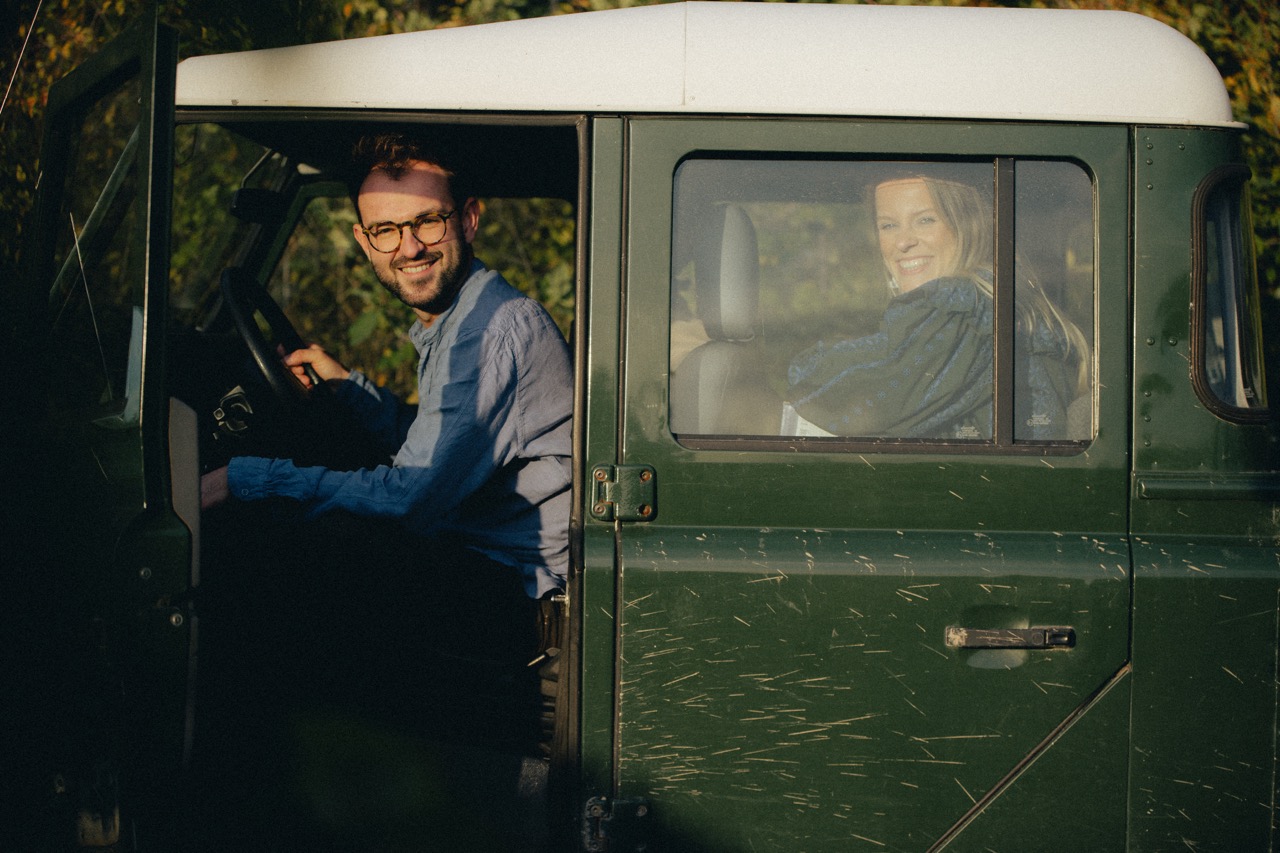
Overall, you probably have a very positive relationship with art, right? What attracts you the most, is it music? Is it theater? Or?
Especially music. Music, along with the senses of smell and taste, moves me the most. The strongest emotions, goosebumps, I usually get from music. But wine can also do that, or food, or a smell that takes you back to childhood. I find it fascinating how wine can transport you to another place or another time.
I also want to ask about Frankovka – Blaufränkisch, because I know that you grow it as well. I love it, so I can't not ask about it. Did you find any signs of historical plantings at your place?
Yes. Near Janowiec Castle, there used to be vineyards planted by Leon Kozłowski [the last private owner of the castle who had planted a 4-hectare vineyard there in the late 1920s], and some varieties survived until today.
Together with Austrian ampelographer Helmut Gangl, we found Blaufränkisch and Gutedel there. Blaufränkisch is challenging in our climate, but it has a strong affinity with limestone. So I planted it in the warmest part of our vineyard, where we have the most limestone. The result is amazing – it’s an old-school Blaufränkisch, less than 11% alcohol, super fresh, stylistically... let’s call it Burgundian.
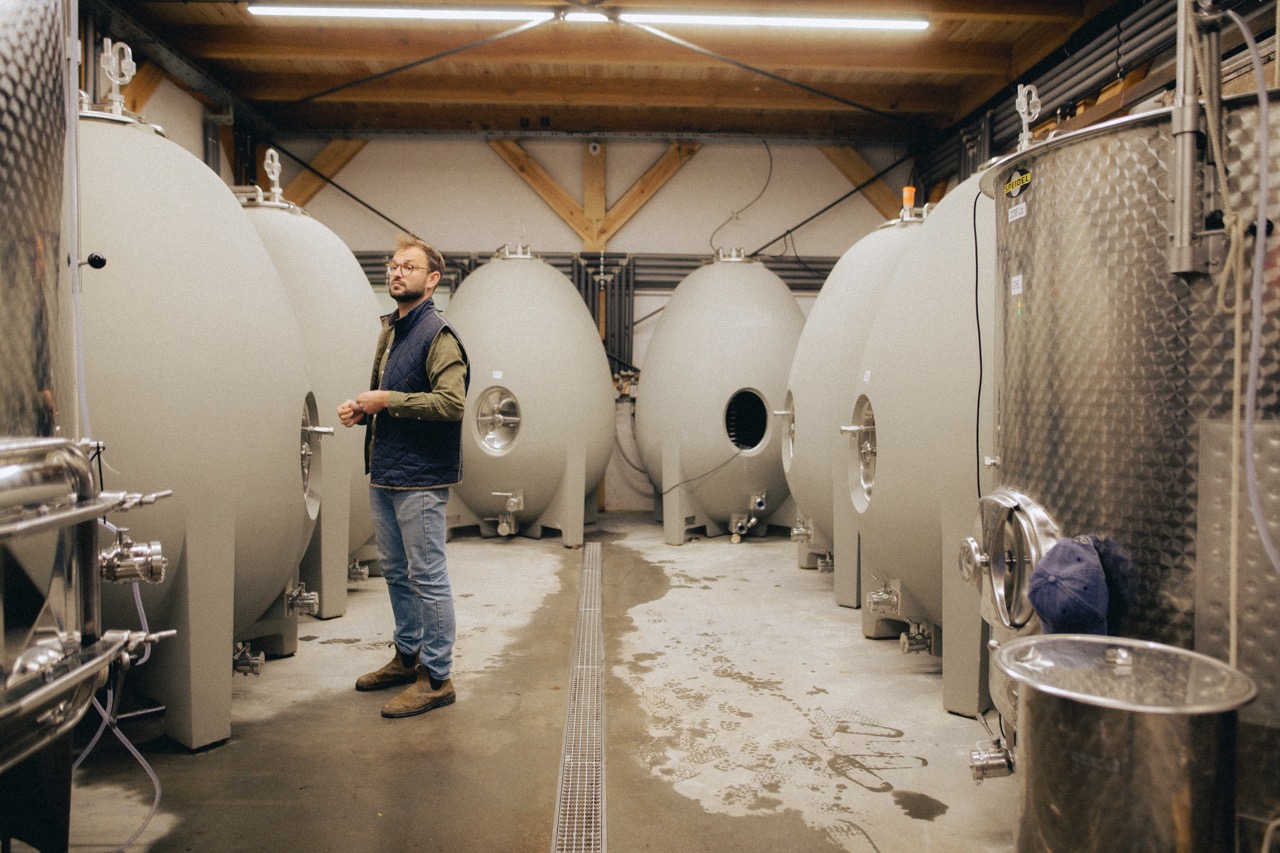
What is the crucial detail, point of view, factor, or how to say it, in viticulture and in the cellar that is yet not talked about much?
I think we don’t talk enough about air, and about lees. Both are very important factors in good winemaking.
Do you remember a moment, a bottle, or an encounter that changed your perception of winemaking? I think we all have one.
For me it was definitely my time with Heinrich Hartl – tasting Pinot Noir from different barrels, different clones, and seeing how the wines changed over time. That really opened my mind.
Also, I can't forget a moment in Chile when I tasted a high-altitude Grenache from Valle de Alcohuaz just after malolactic fermentation. It took me back to my childhood at my grandmother’s place, when I ate fresh “poziomki” – wild strawberries – with cream. It reminded me of her, and it was a mysterious moment for me because she had passed away just before my trip to Chile.
We all have a head full of dreams. What are yours? What are your plans for the future?
One of my dreams is to make sparkling wine – I’ve never done it before. Another is to help establish Polish wine as a recognised brand. I would love to contribute to that.